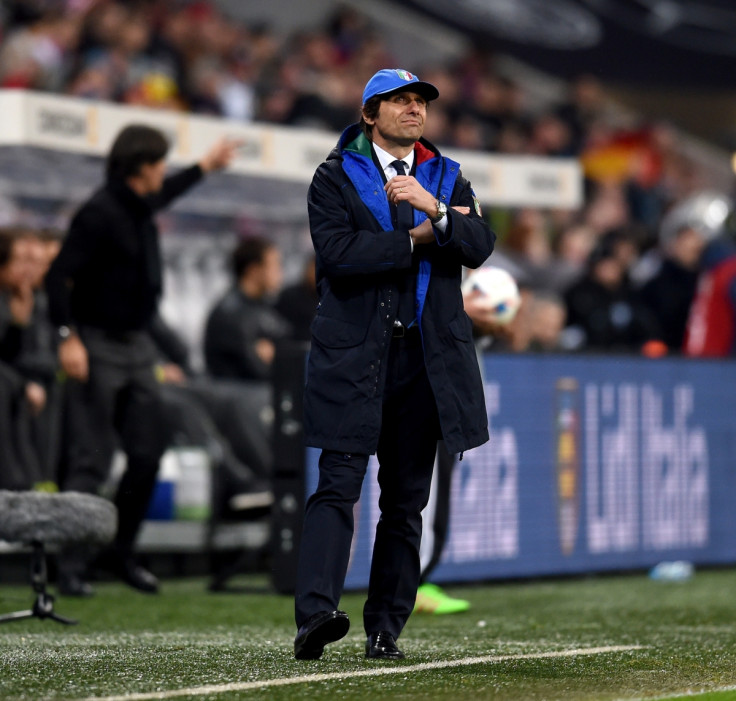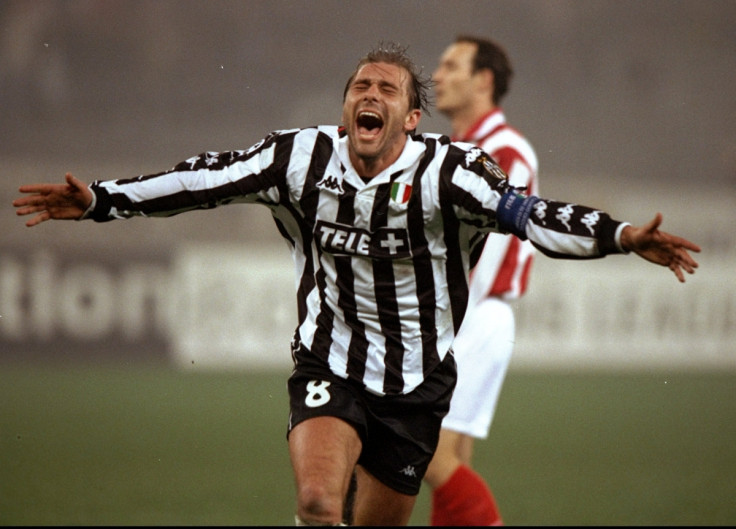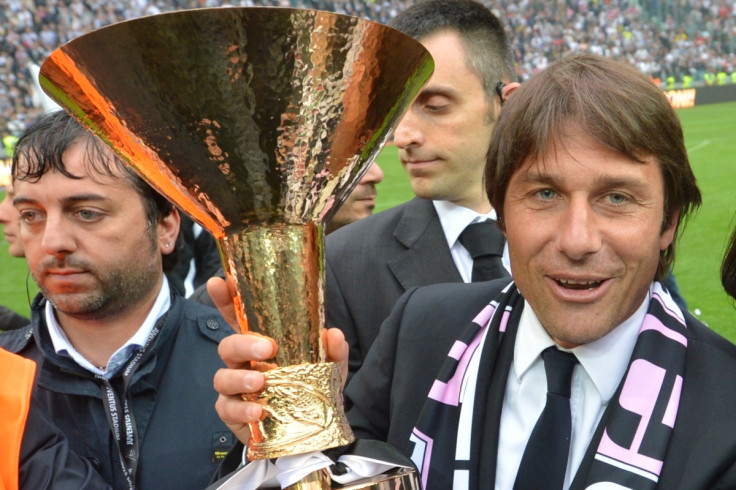Antonio Conte: Serie A titles, Match-fixing scandal and all you need to know about Chelsea's new manager

Chelsea finally confirmed the inevitable on Monday (4 April), ending an official vow of silence following months of speculation to formally announce the appointment of Antonio Conte as their new manager on a three-year contract. The 46-year-old will officially take the reins at Stamford Bridge following the conclusion of Italy's Euro 2016 campaign in France this summer, where the Azzurri will initially compete in Group E alongside Belgium, the Republic of Ireland and Sweden.
So just who is the man tasked with continuing the stabilising work of Guus Hiddink and propelling the Blues back into Premier League title contention after a desperate run under Jose Mourinho that saw the self-proclaimed "Special One" sacked just seven months after winning his third title?IBTimes UK outlines a timeline of his eventful career to date.
Hailing from the city of Lecce in southern Italy, Conte began his playing career with his hometown team and stayed with them for six years before securing a move to Juventus in 1991. The cultured midfielder's initial successful stint in Turin lasted for 13 years and more than 500 appearances, during which time he won a glut of silverware that included five Serie A titles, one Coppa Italia, one Uefa Cup, the Club World Cup and a European Super Cup. Alongside the likes of Alessandro del Piero, Didier Deschamps, Gianluca Vialli and Fabrizio Ravanelli, he was also a member of Marcello Lippi's side that overcame Ajax on penalties during the 1996 Champions League final after a 1-1 draw in Rome.

Conte, who earned 20 senior caps for his country and was a runner-up at both the 1994 World Cup and Euro 2000 tournaments, eventually hung up his boots in 2004 before beginning a coaching career with lower-league Arezzo and later taking charge of Bari, Atalanta and Siena, twice winning promotion to the top-flight. He later returned to Juve in May 2011, replacing Luigi Delneri with an unenviable brief to reverse the club's declining fortunes after a difficult few years that included a humiliating demotion to Serie B as punishment for involvement in the 2006 Calciopoli match-fixing scandal.
His first season was certainly impressive, with the Bianconeri going an entire league campaign unbeaten and chalking up 23 wins from 38 matches to lift their first Scudetto since that aforementioned crisis. They also reached the final of the Coppa Italia, but suffered a 2-0 defeat to Napoli at the Stadio Olimpico.
They eased to the title once again the following year, although Conte was handed a 10-month ban in August 2012 after being reprimanded for not reporting two incidents of alleged match-fixing during the 2010-11 campaign with Siena. The Italian Olympic Committee eventually cut that suspension to four months after his case was heard at the National Court of Arbitration for Sport and he returned to the touchline in December.

A third consecutive Serie A crown followed in 2013-14. This one was particularly special as it came after Juve had won 33 of their 38 matches, maintaining a 100% home record and finishing with a colossal final tally of 102 points. The Old Lady never advanced past the quarter-finals of the Champions League during that three-year stretch, but did make it to the last-four of the Europa League in 2014 before being denied a final date with Chelsea courtesy of a 2-1 aggregate defeat to Jorge Jesus' Benfica.
Despite that record of domestic dominance, Conte suddenly quit his role in July 2014 and was named as successor to Italy head coach Cesare Prandelli two months later. Taking over a national side that had, along with England, been knocked out at the group stage of the 2014 World Cup following defeats to Costa Rica and Uruguay, he safely guided them to the European Championship finals by topping Group H ahead of Croatia and Norway with one game to spare. The 1968 winners won seven and lost none of their 10 qualifying fixtures.
© Copyright IBTimes 2024. All rights reserved.






